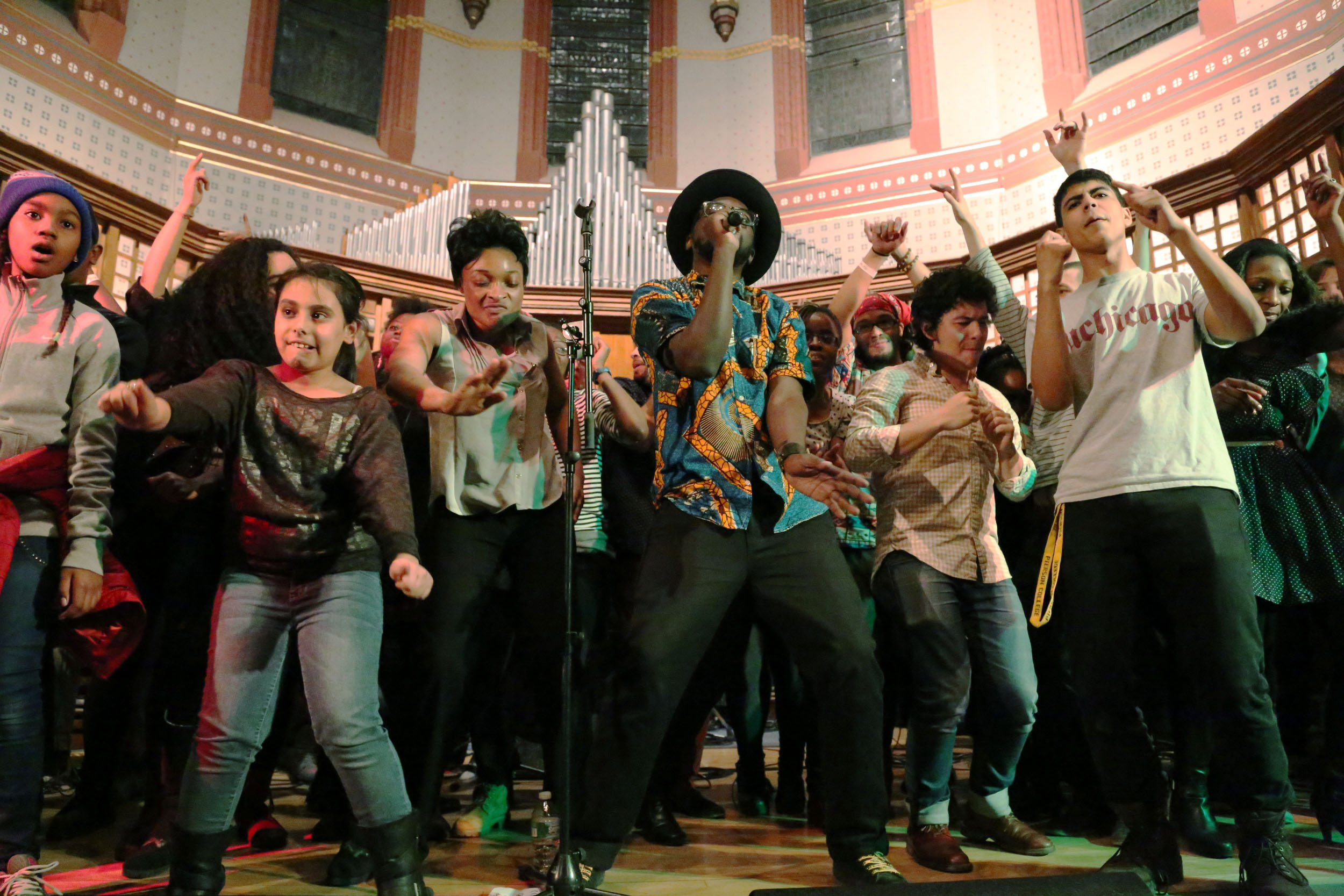
Mara Levitt
This spring, Yale will host its second annual AFRICA SALON, a weeklong celebration of contemporary African arts and culture.
The festival — which begins Monday, March 28 and lasts through April 3 — aims to recognize and celebrate African art, film, music and more through a variety of activities and events, including visual arts exhibitions, film screenings and a fashion salon showcasing the work of contemporary African designers. Currently in its second year, the salon will also feature musical performances, a Shared Studios portal to Nairobi, Kenya — a shipping container equipped with surround audiovisual technology, designed to connect participants directly with visitors to an analogous portal in the Kenyan capitol — and a celebratory African brunch. Ifeanyi Awachie ’14, who curated the event, said that, building on last year’s successful two-day festival, AFRICA SALON 2016 will take place over a full week. Awachie, who is Nigerian-American, said the festival seeks to paint a picture of contemporary African arts through a series of conversations and interactive experiences.
“The main goal is to make a space for African arts and culture at Yale,” Awachie said. “At Yale, when we talk about Africa, we talk about politics, public health, corruption, but we have not had an artistic point of view — and African artists have been producing so much great work. It feels like a special moment in Africa right now, and it is important to provide a platform for people at Yale thinking about it to share their knowledge and for students to see representations of their countries’ artistic [outputs].”
In selecting this year’s participating artists and filmmakers, Awachie explained that she targeted two major groups: students at Yale who may not have yet had the chance to exhibit their work, and African artists who present “new, cutting-edge perspectives” in their approach to art-making. She added that this year’s AFRICA SALON will play host to a number of yet-unseen works, including the inaugural screening of “The Pearl of Africa,” a film documenting the Ugandan LGBTQ+ movement. By showcasing such works, Awachie explained, the salon hopes to start new conversations. Additionally, Awachie noted, the festival will give participants the chance to hear artists share firsthand perspectives of their own work and interact directly with the creators of these pieces, such as the visual artists Nicola Brandt, Helen Harris and David Uzochukwu, whose work is featured in “mo(ve)ments: African Digital Subjectivities,” one of the salon’s exhibitions.
“You get to experience these artistic narratives firsthand, like hearing someone reading their own work or someone playing their own music, and so you absorb so many details and pick up on all kinds of stimulae that you might miss when just reading out of a textbook,” Awachie said.
Students interviewed said that the festival is important for its introduction of a perspective of contemporary Africa that differs radically from the one members of the Yale community might typically experience.
Alexandra Leone ’18, a member of Yale’s African dance group Dzana, also emphasized the significance of bringing an African artistic perspective to the University’s campus.
“As a member of the only African dance group on Yale’s campus, it has been an eye-opening experience to be able to take part in contemporary urban culture from all different parts of the continent,” Leone said. “As an American, it’s not easy to find representations of the modern, thriving African arts scene. Africa Salon offers the rest of the Yale community a glimpse at the vibrant and diverse array of arts and culture represented across Africa, which is an important contrast to the prevailing, stereotyped image of a struggling continent.”
Michelle Angwenyi ’16, who is from Kenya, said it is important for the Yale community to see Africa from a perspective that is not necessarily always political. Art, she said, is a great medium for that type of perspective.
Julia Jenjezwa ’16, who is from Zimbabwe, said the salon offers students an alternative entrance into the world of contemporary African culture, which she believes more accurately reflects the realities of the continent today.
“In a country where the portrayal of Africa is static, AFRICA SALON offers an alternative engagement with the continent,” Jenjezwa said. “This engagement is contemporary, it is vibrant, it is dynamic — like the true Africa of 2016.”







